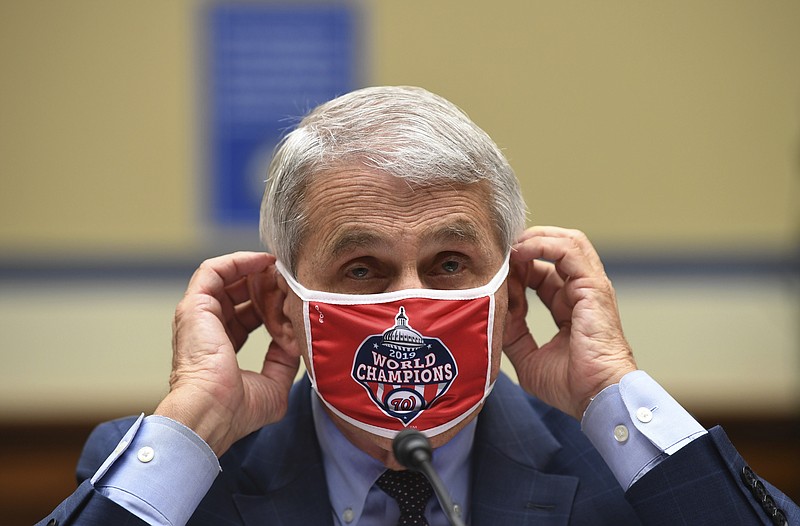When the coronavirus disputes center on when a vaccine might be ready and who is likely to get it, instead of where the disease is likely to worsen and who is more disproportionately affected, we finally may have crested the hill and started down the other side.
To be sure, more people still will be infected and more will die - and there's no reason to drop our guard yet - but a vaccine sometime in the next few months looks much more promising than staring down the barrel of a gun as the world was in March.
As such, we were captivated by recent interviews about Operation Warp Speed, the Trump administration-commissioned race to safely develop a vaccine and deliver it to the American people.
The development is able to move quickly, Moncef Slaoui, head of the operation, told columnist Marc Thiessen because all elements of it are being run parallel, rather than sequentially.
Further, the country is spending billions to begin manufacturing vaccines before clinical trials are over, knowing that some will fail and that some manufacturing investment will be wasted. But it's being done to speed up the distribution once the most effective vaccine is developed.
The sooner the better, as long as it's safe, everyone should be saying. And that's what Slaoui says has been his marching order.
It may be October or November or December, or later, he said. But it will be safe.
"The data will dictate, the facts will dictate," Slaoui said. "I would resign instantly if I was forced to do something that I thought would be inappropriate."
Naturally, the left is politicizing the race to develop a vaccine as it has the spread of the virus. It's all about President Donald Trump and the desperate attempt to defeat him, and nothing more.
U.S. Sen. Kamala Harris, the Democratic vice presidential candidate, recently cast doubt on a vaccine because she says she can't trust what the president says. Then she questioned whether to trust public health experts because they were likely to be "muzzled," "suppressed" and "sidelined" by the president.
To root against a vaccine for political reasons is sad and lamentable.
No less political is a new Bob Woodward book, which says Trump told the author in March he didn't sound the alarm about the coronavirus earlier because he didn't want to panic the country.
Though the national media has leapt on the revelation as new, it's basically the same thing the president told the public in the spring. It would have irresponsible to shout fire in a crowded theater, to warn immediately of an illness about which little was known and that might be contained.
"I didn't see any discrepancies between what [Trump] told us and what we told him and what he ultimately came out publicly and said," Dr. Anthony Fauci, the country's top infectious diseases expert and head of the National Institute of Allergy and Infectious Diseases, said in a Fox News interview Wednesday. "He really didn't say anything different than we discussed when we were with him."
We're more interested in what happens when the vaccine arrives, because the public's reaction then could make all the difference in achieving herd immunity, which is when a large percentage of the population - the herd - becomes immune to a virus.
When it does arrive, a professor of preventive medicine and infectious diseases at Vanderbilt Medical Center told the Washington Examiner, it will require two doses.
"The first dose primes the immune system," Dr. William Schaffner said. "The second dose, a month later, gives it an additional push. You get much higher protection levels and you can anticipate that ... they will last for a longer time. It's the second dose that really assures the effectiveness."
The opportunity to receive a vaccine is likely to bring out as many reactions as did the request to wear a mask for protection for yourself and for others. Some will do it, some will get one dose, some will fear any side effects, some will refuse for one illogical reason or another, and some simply will remove their mask and go about their merry way.
"It's already clear that the population thinks, figuratively speaking, that two days after the vaccine is announced everybody can throw their masks in the trash can ... ," Schaffner told the Examiner. "They're going to be surprised when the public health community says, 'No, keep the masks. Keep up the social distancing. You're going to need that for a long time."
These aren't things we necessarily wanted to hear, but need to hear. They draw us closer to the finish line.
So while things may not return to normal as soon as we would like them to, we'll be a lot closer a lot faster than we might have been without the Trump administration's Herculean efforts at developing a vaccine.
